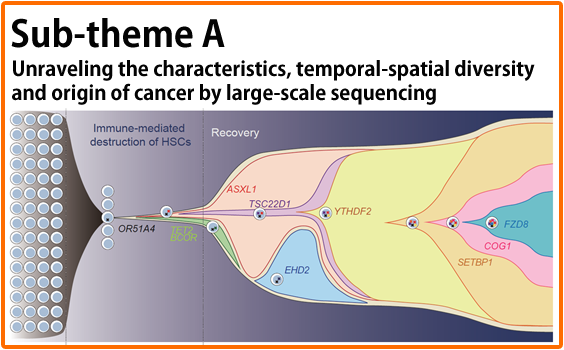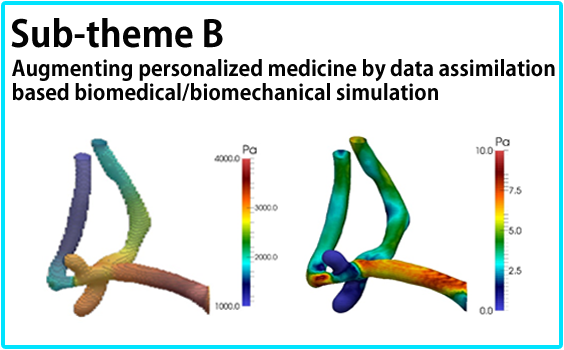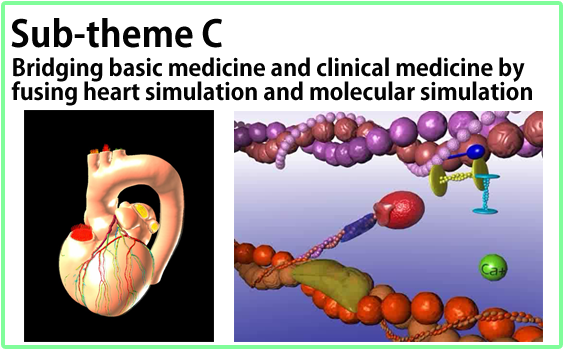

- NEWS
- [2019.12.20] ARTICLE: Frequent mutations that converge on the NFKBIZ pathway in ulcerative colitis (Nature)
- [2019.11.22] The 4th RIKEN R-CCS HPC Youth Workshop (2/18-20 Kobe, Japan)
- [2019.8.2] International Symposium on Research and Education of Computational Science (RECS2019) (10/2 Tokyo, Japan)
- [2019.5.23] A brand new name for a brand new supercomputer (REKEN's website)
- [2019.1.4] ARTICLE: Age-related remodelling of oesophageal epithelia by mutated cancer drivers (Nature)
- [2018.12.12] International HPC Summer School 2019 (7/7-12 Kobe, Japan)
- [2018.11.20] The 1st R-CCS International Symposium (2/18-19 Kobe, Japan)
- [2018.11.20] The 3rd RIKEN R-CCS HPC Youth Workshop (2/15-17 Kobe, Japan)
- [2018.8.27] International Symposium on Research and Education of Computational Science (RECS2018) (9/20-21 Tokyo, Japan)
- [2018.4.10] RIKEN International HPC Summer School FY2018 (7/2-4 Kobe, Japan)
- [2017.3.14] 2017 Joint PI Meeting: NSF BIGDATA and Big Data Hubs & Spokes
(3/15 Washington D.C, USA)Topics:Analyzing and Interpreting Cancer Big Data/Satoru MIYANO - [2017.3.14] Computational Biology for Big Data (3/24 Shanghai, Chaina)
Topics:Challenging Cancer Omics Big Data with Supercomputers/Satoru MIYANO - [2017.2.15] International Symposium on IMSUT Joint Research Project "Deciphering Genome Big Data" (3/21 Tokyo)
- [2017.2.10] The 7th AICS International Symposium -Emerging numerical techniques for exascale and post-Moore era- (2/23-24 Kobe,Japan)
- [2017.1.31] This website opened
Priority Issue on Post-K computer(Supercomputer Fugaku) : Integrated Computational Life Science to Support Personalized and Preventive Medicine
OUTLINE
WHO WE ARE
“Integrated Computational Life Science to Support Personalized and Preventive Medicine” is one of the Priority Issues on Post-K computer(Supercomputer Fugaku) initiated by the Ministry of Education, Culture, Sports, Science and Technology(MEXT) in 2014. It engages in development of applications aimed at producing groundbreaking results in a computational life science field toward active use of the post-K computer(Supercomputer Fugaku) under the FLAGSHIP 2020 Project.
OUR GOAL
Our goal is to establish the integrated computational life science that constitutes the basis for personalized/preventive medicine. This requires a methodology for comprehensive understanding of pathological states and exploration of their effective treatments through a view from genome to the whole body, both environment- and organism-spatiotemporally. We consider that this methodology can be realized by “information technology”, “application of physics principles”, and “utilization of big data” enhanced with the post-K(Fugaku) scale computation.
WHAT WE DO
To achieve the goal, we are tackling three subthemes.
Sub-theme A
We develop a groundbreaking computational platform for analyzing genomic data in an unprecedented scale in the field of life sciences with which we shall make breakthroughs in understanding cancer.
Sub-theme B
We develop computational techniques to assimilate individual data for high-level integrated simulation of living matter.
Sub-theme C
Integration of molecular cellular level studies and individual organ level studies creates an innovative simulation model of heart that reflects quantitative features by associating micromechanics with macromechanics.
 |
 |
 |
Priority Issues on Post-K computer
Priority Issues on Post-K computer(Supercomputer Fugaku) engage in development of applications aimed at producing groundbreaking results in computational science fields toward active use of the post-K computer(Supercomputer Fugaku). Different institutes are in charge of the issues, which have been identified for implementation on the post-K computer(Supercomputer Fugaku).













